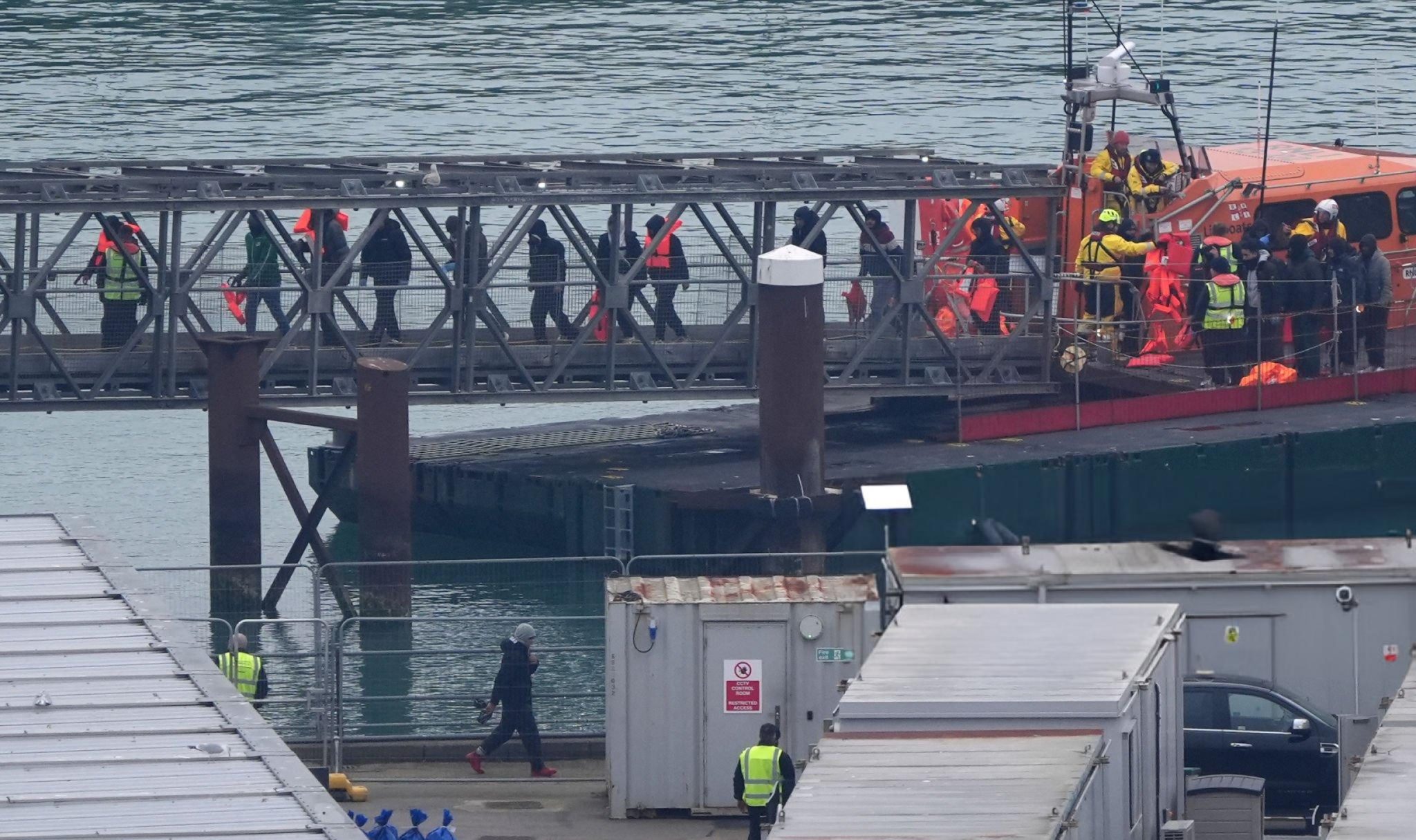Migrants cross english channel in third consecutive day of arrivals
Migrants have continued to cross the English Channel into the UK, marking the third consecutive day of arrivals in 2025.
Photographs captured men and women wrapped in blankets and wearing life jackets being brought ashore in Dover on Monday by Border Force vessels. The crossings occurred amid calm sea conditions and fair weather, facilitating the perilous journey.
Fatalities and rescues
The arrivals come just days after the UK Government confirmed the first migrant fatality of the year during a small boat incident off the French coast on Saturday. According to French media, the victim was a Syrian man who tragically lost his life after being crushed by others aboard an overcrowded and leaking dinghy.
The French coastguard reported rescuing 35 individuals from the Channel overnight on Friday. Among them, a teenager was taken to Boulogne-sur-Mer hospital, where they remain in a stable condition.
Channel crossings in numbers
Provisional data from the Home Office indicates that a total of 128 migrants have made the crossing so far this year. Two boats have been recorded making the journey—one carrying 61 people and the other 67—on 4 January and 11 January respectively.
In 2024, a total of 36,816 individuals crossed the Channel, with the year’s first crossings occurring on 13 January. While this represents a 25% increase from the 29,437 arrivals recorded in 2023, the figure is still significantly lower than the record 45,774 arrivals in 2022.
Government response
A Home Office spokesperson expressed the Government’s determination to tackle the ongoing crisis, highlighting the risks posed by dangerous small boat crossings.
“We all want to end these perilous journeys, which threaten lives and undermine our border security,” the spokesperson said.
“The people-smuggling gangs do not care whether the vulnerable people they exploit live or die, as long as they are paid. We will stop at nothing to dismantle their business models and bring them to justice.”
The UK Government has consistently framed the crossings as both a humanitarian and security challenge, emphasising the need to combat the criminal networks facilitating these dangerous journeys.
Ongoing crisis
The English Channel remains one of the busiest and most treacherous migration routes in Europe, with thousands risking their lives each year to reach the UK. Overcrowded and unseaworthy dinghies are often used for the crossings, placing migrants at significant risk of drowning or other life-threatening incidents.
Despite efforts to deter illegal crossings, the number of migrants attempting the journey has remained high, driven by factors such as conflict, persecution, and economic instability in their home countries.
International cooperation has been a key focus of UK border policy, with agreements between the UK and France aimed at increasing patrols and sharing intelligence to disrupt smuggling operations. However, critics argue that such measures have done little to address the root causes of migration or provide safe and legal routes for asylum seekers.
Broader implications
The Channel crossings continue to generate intense political debate in the UK, with the Government facing pressure from both sides of the political spectrum. While some advocate for stricter border controls and harsher penalties for people smugglers, others call for a more compassionate approach, emphasising the need to improve access to legal asylum routes.
As the number of arrivals continues to climb, the UK’s immigration and asylum system remains under scrutiny, with questions raised about its capacity to process claims efficiently and humanely.
For now, the Government’s focus remains on disrupting the criminal networks behind the crossings and preventing further loss of life in the Channel. However, the enduring complexity of the crisis suggests that a long-term solution may still be some way off.






